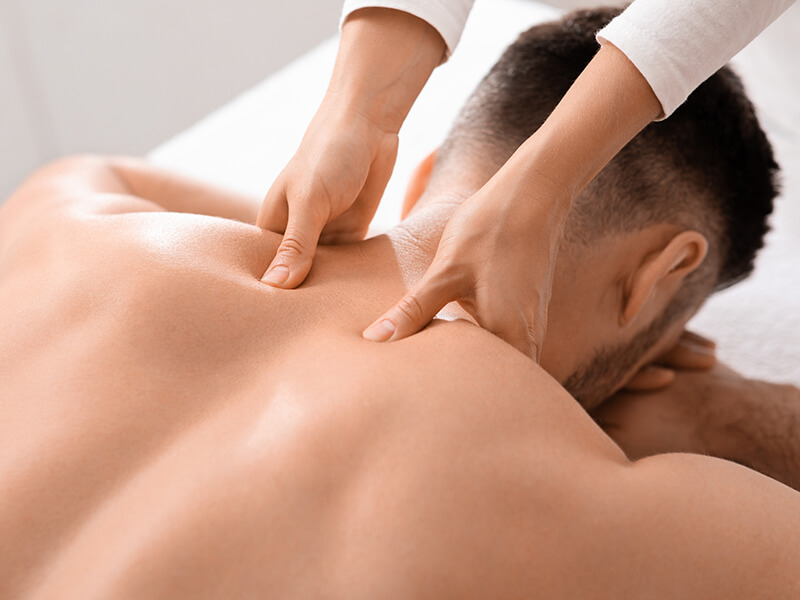Acupressure is a practice used in Traditional Chinese Medicine, where pressure is placed on specific body points to restore the flow of Chi or Qi along the body’s energetic channels, called meridians. Acupressure can be self-administered or administered by a professional. Acupressure is less invasive than acupuncture, which uses fine needles to stimulate those same energetic points.
What To Expect
An acupressure session is typically administered by an acupuncturist or by a massage therapist who has received acupressure training. Acupressure is performed using the thumbs, fingers, knuckles, or specially crafted acupressure tools. As each acupressure point is manipulated, you will feel increasing pressure for thirty seconds to two minutes, then the pressure will decrease over thirty seconds. This process is repeated at various points across the body. Sessions typically last about an hour after the initial intake session.
Benefits
Conditions that may benefit from acupressure therapy include migraines, fatigue, anxiety, tension, nausea, and chronic pain. Acupressure can stimulate blood circulation, lymphatic flow, hormone production, and immune function. Following an acupressure session, recipients may experience improved sleep, decreased anxiety and depression, improved digestion, and other physical and mental health benefits.
Contraindications
Persons who are currently pregnant or breastfeeding, have a bleeding disorder, pre-existing heart conditions, broken bones or sprains, or spinal injury should not receive acupressure. Those with bruised or broken skin, open wounds, acute inflammation, bone disease, and varicose veins should not receive acupressure therapy.
Frequency
Acupressure is generally regarded as safe for most people and can be self-administered as often as several times a day. Your acupuncturist or massage therapist will be able to teach the proper application of acupuncture to specific points that can address your current concerns. Complete sessions should be done weekly or bi-weekly until the issue is resolved. Your massage therapist or acupuncturist will work with you to create a treatment schedule that is appropriate for your needs.
Aftercare
You will want to hydrate and rest following an acupressure session, allowing your body to adjust to the restored energy flow and recover from any tenderness or soreness that may accompany. Alternating cryotherapy and thermotherapy can be used 24 hours after your session to alleviate soreness. Epsom baths are recommended following a session. Eat light meals following your session and try to get a full night’s rest. Avoid strenuous activity for 24 hours after your acupressure session. You may experience bruising at acupressure points where deep pressure has been applied. Should you experience excessive bruising, you will want to notify your primary care physician, as this may indicate an underlying medical concern. Discuss your concerns and reactions with your acupuncturist at your next appointment, as adjustments can be made to the pressure and intensity of the treatment.
